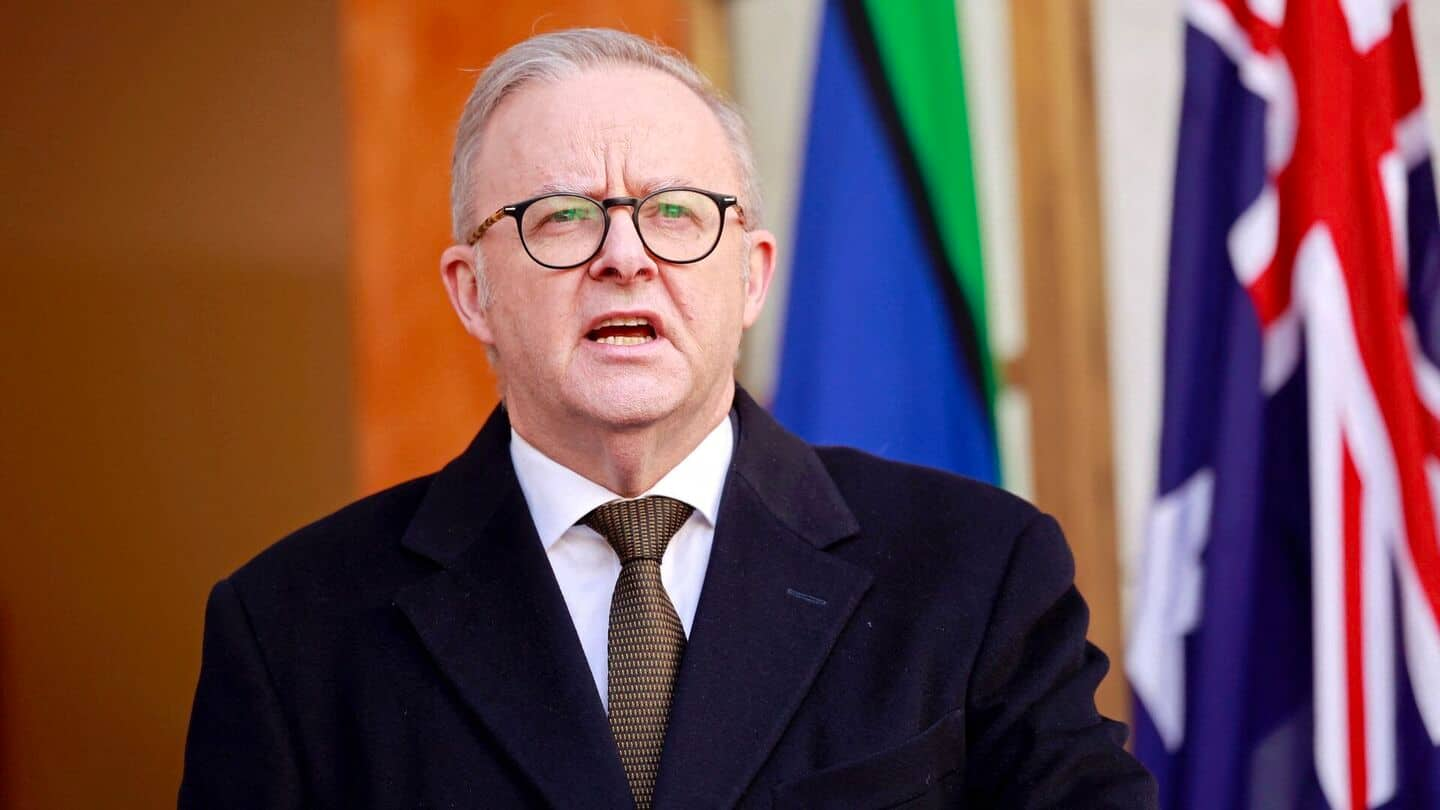
Australia joins Britain, France, and Canada to recognize Palestinian state
What's the story
Australia has announced plans to formally recognize Palestine as a state at the upcoming United Nations General Assembly in September. Prime Minister Anthony Albanese announced this decision, stressing that it is contingent on Hamas having no role in Palestine's future governance. "Australia will recognize the state of Palestine," said Albanese, adding that this recognition is based on commitments received from the Palestinian Authority (PA) to disarm and recognize Israel.
Political dialogue
Need for political solution, not military 1: Albanese
Albanese said he had a "long" and "civil" discussion with Israeli Prime Minister Benjamin Netanyahu over the matter. "I have said it publicly and I said it directly to...Netanyahu: the situation in Gaza has gone beyond the world's worst fears. Far too many innocent lives have been lost," he said. "The Israeli government continues to defy international law and deny sufficient aid, food and water....This vital aid must be allowed to get to the people who need it most."
Diplomatic tension
Israel's ambassador says decision won't change reality on ground
Israel's ambassador to Australia, Amir Maimon, said Albanese's decision "would not change the reality on the ground." "Peace is not achieved through declarations; it is achieved when those who have chosen terror abandon it and when violence and incitement end," Maimon said in a statement," he said. Opposition Leader Sussan Ley also opposed the move, saying it puts Australia out of step with key ally the United States.
Global recognition
UK, France, Canada to follow Australia's lead
The United Kingdom, France, and Canada have also said they will recognize Palestine next month if Hamas plays no role in its governance. Currently, 146 of 193 UN member states recognize Palestine as a sovereign state. As a permanent member, the United States has veto power over Security Council decisions, which it has previously used to prevent Palestine's admission. On Friday, US Vice President JD Vance said the US had "no plans" to do the same.